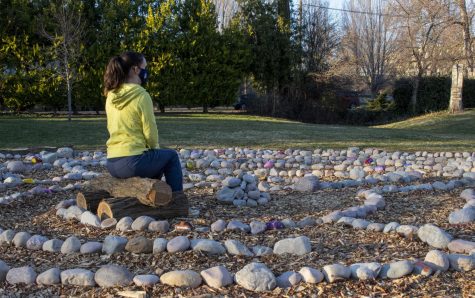Zen Buddhism Offers Path Towards Self-actualization
April 7, 2016
O”A roshi is a person who has actualized that perfect freedom which is the potentiality for all human beings. He exists freely in the fullness of his whole being. The flow of his consciousness is not the fixed repetitive patterns of our usual self-centered consciousness, but rather arises spontaneously and naturally from the actual circumstances of the present…His whole being testifies to what it means to live in the reality of the present.”
I don’t know about all of you but this quote by Zen master Richard Baker about his instructor, Shunryu Suzuki Roshi, concisely expresses the preeminent motive of my life: “self-actualization.” Or, in more pessimistic terms, this quote could be said to describe the dominant anxiety of my existence: that I’m somehow failing to live the life I was meant to live, that maybe I’m squandering my waking moments by falling into thought patters about people’s perceptions of me, whether or not my accomplishments will take me where I want to go and if I’m spending my days in stagnation or making progress towards a greater goal. As of late, I’ve made solid progress towards resolving this issue and I want to articulate these discoveries for others who may share these concerns.
In his foundational “Zen Mind, Beginner’s Mind,” Shunryu Suzuki enumerates the basic form and concepts that yield a nutritious soil in which a seedling practice can blossom. One particularly vital principle Suzuki discusses is the concept of the gaining idea. He writes, “Usually when you practice zazen [seated Zen meditation], you become very idealistic, and you set up an ideal or goal which you strive to attain and fulfill … when you are idealistic you have some gaining idea within yourself; by the time you attain your ideal or goal, your gaining idea will create another ideal.” At first it might seem an inappropriate extrapolation to apply Zen meditation advice to everyday life, but as Shunryu writes, “The state of mind that exists when you sit in the right posture is, itself, enlightenment.” When we practice zazen, we practice maintaining this state of enlightenment so that it might spill over into and enrich our everyday living.
But this is not to say that I interpret Shunryu’s advice as an exhortation to complacency and inaction. Shunryu does not mean for us to relinquish our goals, motivations or dreams. To me, this is simply the rejection of expectation. Suzuki is saying that to enter a situation–a party, an interview, a date, a life–with preconceived notions and desired outcomes is when frustrations appear and self-actualization becomes unattainable.
To enter a situation without baggage–the arbitrary social standards, past regrets, desired outcomes, and contrived ideas, scripts and seemingly preordained roles that we have adopted to get us where we want to be–is to clear a path towards self-actualization. To enter a situation with your brain clear and empty, yet primed and actively reactive to the situations, ideas and people that present themselves is to prepare yourself for a most unadulterated actualization. This is akin to clearing a blazing wildfire once suffocating your mind with emotional, intellectual and psychological smoke, and instead opting for clean, brilliant lightning flashes of inner genius and intrinsic wisdoms.
By clearing the mind of expectation, we can finally sit at the outermost edge of the plateau that is each of our lives. In rejection of the sturdy ground of ideology, the safety of desired outcomes and routes for achieving them, we are constantly gazing at the beauty of the moment and the ways we thrive in its spontaneity.







